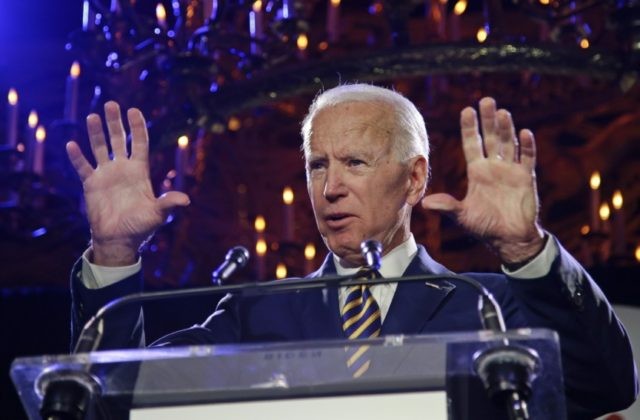Frank Biden, the youngest brother of former Vice President Joe Biden, saw his business interests benefit from millions of dollars in taxpayer loans to Caribbean nations during the Obama years.
The extensive overlap in Frank Biden’s dealings and Obama-Biden foreign policy in Central America is exposed in Peter Schweizer’s new book—Profiles in Corruption: Abuse of Power by America’s Progressive Elite.
Frank Biden first set his sights on the region in 2009, as the Obama administration began to repair the U.S. relationship with Costa Rica. Tensions between the two countries flared under President George W. Bush, most notably on how to deal with drug trafficking.
When President Barack Obama entered the White House, he set out to mend fences in the region in hopes of inaugurating a new era of global cooperation. Leading the charge on that front was Joe Biden, who had long standing ties to the region from his tenure leading the Senate Foreign Relations Committee.
Shortly after the new administration took office, Frank Biden began scouting real estate opportunities in Costa Rica. A lawyer by training, Frank was undeterred by his lack of background in international development and decades old legal troubles at home.
As Schweizer notes, despite the professional and personal handicaps, business opportunities were plentiful for Frank, especially after his brother paid a visit to the country.
“Just months after Vice President [Joe] Biden’s visit, in August, Costa Rica News announced a new multilateral partnership “to reform Real Estate in Latin America” between Frank Biden, a developer named Craig Williamson, and the Guanacaste Country Club, a newly planned resort,” Schweizer writes in his book, a copy of which was exclusively obtained by Breitbart News.
The venture—officially sold to investors and the public as an opportunity to protect Costa Rica’s “breathtaking beauty”—amounted to little more than decimating the country’s natural wilderness to build a luxurious resort for wealthy foreigners.
“In real terms, Frank’s dream was to build in the jungles of Costa Rica thousands of homes, a world-class golf course, casinos, and an anti-aging center,” Schweizer notes. “The Costa Rican government was eager to cooperate with the vice president’s brother.”
The project, which is still in the development phase, has made Frank Biden a well connected figure in Costa Rica’s political landscape. A letter the country’s president, Luis Guillermo Solis Rivera, penned praising the project even made its way on the internet in what appears to have been a botched attempt to solicit further investors.
In order to execute a project of such scale, however, Costa Rica would need to update and expand its electrical grid. Located on the Central American Isthmus, more than 51 percent of the country’s landscape is forested, with nearly half of that being land that has not been disturbed by human activity. As such, much of the area suitable for the type of resort Frank Biden wanted to build lacked access to electricity.
Frank, perhaps sensing a chance to make even more money, entered into a partnership with the Costa Rican National Power and Light Company (CNFL) to build a solar power complex in the country’s northwest region. The new facility would provide enough electricity to Frank’s resort, which was to be built in the vicinity.
The partnership with CNFL was secured even though Frank and his company, Sun Fund Americas, had no experience in the energy sector.
“Frank did not have any background in solar energy, but it was quite clear who he was when he pitched the project to investors,” Schweizer writes. “His brother Joe’s name figured prominently in his biography.”
In October 2016, the Costa Rican government signed a letter of intent with Sun Fund Americas to build a solar power facility in the country. The project, which involved a company called GoSolar, specifically earmarked more than $6.5 million in taxpayer-backed loans that had been approved in 2015 by the Obama administration’s Overseas Private Investment Corporation (OPIC).
Having found Costa Rica fertile ground, Frank next turned his attention to other parts of the Caribbean, like Jamaica. Once again Frank’s business pivot coincided with a new development in brother’s political career.
The Obama administration had announced in June 2014 it was launching the Caribbean Energy Security Initiative (CESI) under the direction of Joe Biden. Officially, the program was meant to support energy sustainability projects in the region, with American tax dollars helping put together deals for local projects.
One of those projects was the building of a 20-megawatt solar power plant in Jamaica, for which OPIC had approved a $47.5 million loan. Around the same time that project was announced, Sun Fund Americas confirmed that signed a power “purchase power purchase agreement to build a 20-megawatt solar facility in Jamaica.”
In total, between 2009 and the end of the Obama administration, Frank Biden’s Caribbean projects benefited from more than $54 million in U.S. taxpayer loans.
The loans, though, are not the only example of Frank Biden’s business interests intersecting with his brother’s political influence, as Profiles in Corruption reveals.

COMMENTS
Please let us know if you're having issues with commenting.